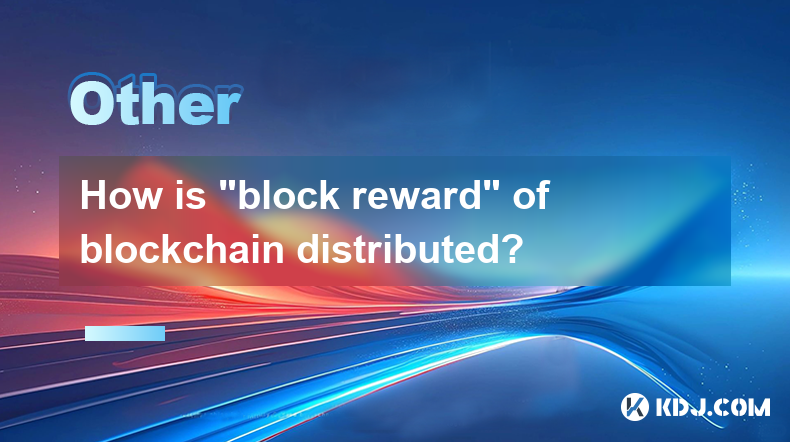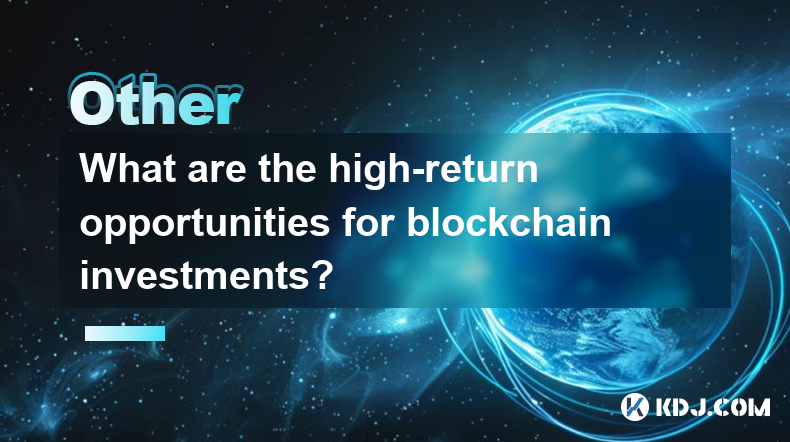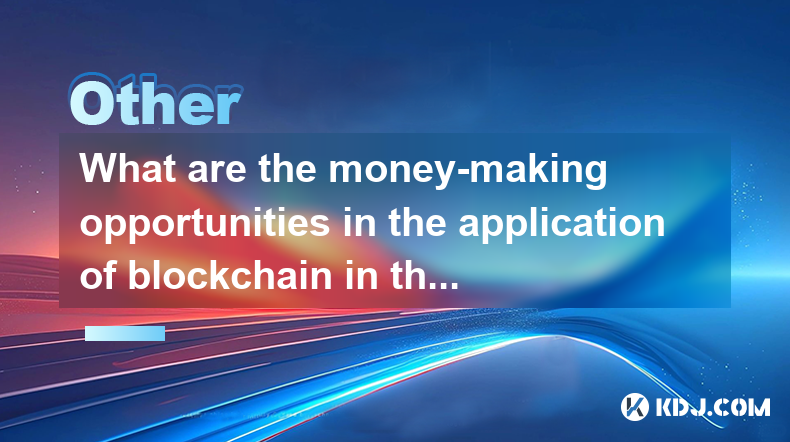-
 Bitcoin
Bitcoin $82,770.3070
-0.79% -
 Ethereum
Ethereum $1,784.9721
-1.03% -
 Tether USDt
Tether USDt $0.9995
-0.03% -
 XRP
XRP $2.0811
-4.07% -
 BNB
BNB $588.4028
-1.35% -
 Solana
Solana $117.9368
-1.56% -
 USDC
USDC $0.9999
-0.01% -
 Dogecoin
Dogecoin $0.1640
-3.64% -
 TRON
TRON $0.2391
1.11% -
 Cardano
Cardano $0.6363
-3.69% -
 UNUS SED LEO
UNUS SED LEO $9.0201
0.83% -
 Chainlink
Chainlink $12.5863
-2.40% -
 Toncoin
Toncoin $3.2943
0.09% -
 Stellar
Stellar $0.2493
-3.18% -
 Avalanche
Avalanche $17.1455
-6.07% -
 Shiba Inu
Shiba Inu $0.0...01204
-1.94% -
 Sui
Sui $2.1442
-4.90% -
 Hedera
Hedera $0.1565
-3.38% -
 Polkadot
Polkadot $3.9305
-0.97% -
 Litecoin
Litecoin $81.1625
-2.44% -
 MANTRA
MANTRA $6.2434
-0.15% -
 Bitcoin Cash
Bitcoin Cash $293.6265
-3.05% -
 Dai
Dai $0.9999
-0.03% -
 Bitget Token
Bitget Token $4.4268
-1.76% -
 Ethena USDe
Ethena USDe $0.9990
-0.01% -
 Pi
Pi $0.6385
-4.83% -
 Monero
Monero $213.1071
-1.74% -
 Hyperliquid
Hyperliquid $11.4382
-3.81% -
 Uniswap
Uniswap $5.7181
-2.77% -
 OKB
OKB $53.7281
4.50%
How is "block reward" of blockchain distributed?
Block rewards incentivize miners in PoW and validators in PoS to secure blockchain networks, with distribution varying based on the consensus mechanism and network design.
Mar 31, 2025 at 01:50 pm

Understanding Block Rewards in Blockchain
Block rewards are a fundamental aspect of many blockchain networks, particularly those employing a Proof-of-Work (PoW) consensus mechanism like Bitcoin. They represent newly minted cryptocurrency given to miners (or validators in Proof-of-Stake networks) for successfully adding a new block of validated transactions to the blockchain. This reward incentivizes participants to secure the network and maintain its integrity. The distribution mechanism varies depending on the specific blockchain's design.
The Distribution Mechanism in Proof-of-Work (PoW) Blockchains
In PoW systems, miners compete to solve complex cryptographic puzzles. The first miner to solve the puzzle gets to add the next block of transactions to the chain and receives the block reward. This reward is typically a predetermined amount of the native cryptocurrency, defined in the blockchain's code. The difficulty of the puzzle adjusts dynamically to maintain a consistent block generation time, ensuring network stability. This means the rate at which new coins enter circulation is controlled.
The distribution is essentially a direct payment to the successful miner. They receive the reward directly into their designated cryptocurrency wallet. This wallet is linked to the mining hardware or pool they used to solve the cryptographic puzzle. The size of the reward is usually fixed at the start but can decrease over time according to a pre-defined schedule (like Bitcoin's halving events).
Mining Pools and Reward Distribution
Many miners join forces by participating in mining pools. A mining pool combines the computing power of multiple miners to increase their chances of solving the block puzzle. If a pool successfully mines a block, the block reward is distributed among the pool members based on their contribution (usually proportional to their hashing power). The pool operator typically takes a small commission. This mechanism increases the chances of smaller miners receiving rewards.
Block Reward Distribution in Proof-of-Stake (PoS) Blockchains
Proof-of-Stake (PoS) blockchains operate differently. Instead of solving complex puzzles, validators are chosen to create new blocks based on the amount of cryptocurrency they stake (lock up) in the network. The distribution of block rewards in PoS is often more complex. Validators are selected probabilistically, based on the proportion of cryptocurrency they have staked relative to the total staked amount. The reward is then distributed to the chosen validator.
The reward in PoS systems is often a portion of the transaction fees generated within the block, in addition to a potential staking reward. This differs from PoW, where the block reward is primarily new cryptocurrency. The distribution is more democratic and energy-efficient compared to PoW. It also tends to be less centralized, as participation isn't dominated by those with the most powerful hardware.
Transaction Fees and Their Role
In both PoW and PoS systems, transaction fees play a crucial role in the distribution of rewards to validators or miners. These fees are paid by users to incentivize the network to process their transactions quickly and efficiently. A portion of these fees is usually included in the block reward, supplementing the base reward. This mechanism ensures network sustainability even as the base block reward decreases over time.
Variations in Block Reward Distribution
The specifics of block reward distribution can vary significantly between different blockchain networks. Some projects may implement complex reward schedules, incorporate governance mechanisms, or have unique distribution models. It's essential to understand the particular mechanisms of the specific blockchain you are interested in. Always consult the project's whitepaper or documentation for detailed information.
The Importance of Block Rewards
Block rewards are vital for the security and sustainability of blockchain networks. They incentivize participation, ensuring that the network remains decentralized and secure. Without them, there would be little incentive for miners or validators to dedicate resources to maintaining the network's integrity. The distribution mechanism is carefully designed to achieve this goal effectively.
Frequently Asked Questions
Q: What happens to the block reward after it's distributed?
A: The miner or validator receives the block reward in their cryptocurrency wallet. They can then choose to hold it, sell it on an exchange, or use it for other purposes within the blockchain's ecosystem.
Q: How often are block rewards distributed?
A: The frequency of block reward distribution depends on the specific blockchain. Some networks generate new blocks every few seconds, while others may take several minutes. This is determined by the network's consensus mechanism and block time.
Q: Are block rewards taxed?
A: The tax implications of block rewards vary depending on your jurisdiction. It's crucial to consult with a tax professional to understand the tax rules in your region concerning cryptocurrency income. Treatment of block rewards as income is common, but specifics vary widely.
Q: What happens to the block reward when the total supply of cryptocurrency is reached?
A: Many blockchains have a pre-defined total supply. Once this limit is reached, the block reward may become zero or significantly reduced, leaving transaction fees as the primary incentive for miners or validators.
Q: Can I receive block rewards without mining or staking?
A: Generally, no. Receiving block rewards typically requires actively participating in the consensus mechanism of a blockchain, either through mining (PoW) or staking (PoS). There are some exceptions, such as airdrops or other promotional activities, but these are not directly related to block rewards.
Q: How are block rewards different in PoW and PoS?
A: In PoW, block rewards are primarily newly minted coins given to miners for solving cryptographic puzzles. In PoS, block rewards often consist of a combination of newly minted coins and transaction fees paid to validators chosen based on their stake. The distribution mechanisms are also significantly different.
Q: What is the significance of the halving event in Bitcoin?
A: Bitcoin's halving event is a programmed reduction in the block reward. This event occurs approximately every four years and reduces the rate at which new bitcoins are created, contributing to its scarcity and potentially affecting its price.
Q: What determines the size of a block reward?
A: The size of a block reward is defined in the blockchain's code and can vary significantly between different blockchains. It may be fixed or decrease over time according to a pre-determined schedule, such as Bitcoin's halving events. Transaction fees can also contribute to the total reward received by validators or miners.
Disclaimer:info@kdj.com
The information provided is not trading advice. kdj.com does not assume any responsibility for any investments made based on the information provided in this article. Cryptocurrencies are highly volatile and it is highly recommended that you invest with caution after thorough research!
If you believe that the content used on this website infringes your copyright, please contact us immediately (info@kdj.com) and we will delete it promptly.
- Shiba Inu (SHIB) Drops Below $0.00001250, Signalling a Crucial Breakdown of the Fibonacci Support Level. Could This Lead to a Crash?
- 2025-04-06 20:10:12
- Trump Family Expands Bitcoin and Crypto Portfolio by Investing in Mining Venture
- 2025-04-06 20:10:12
- Will a Network Upgrade Trigger Gains for Solana Price In Q2 2025?
- 2025-04-06 20:05:13
- 4 Best Cryptos to Buy Before the Next Bitcoin Market Recovery
- 2025-04-06 20:05:13
- Tether (USDT) Holds Its Peg to the U.S. Dollar with Incredible Durability
- 2025-04-06 20:00:12
- Binance Coin (BNB) Emerges as a Big Player in the Cryptocurrency Sector, Securing Its Place as the Fifth Biggest Crypto
- 2025-04-06 20:00:12
Related knowledge

Is the ranking of Chinese blockchain apps real and reliable?
Apr 04,2025 at 09:01pm
The ranking of Chinese blockchain apps has become a topic of interest for many in the cryptocurrency community, as it provides insights into the popularity and adoption of blockchain technology within China. However, the reliability and authenticity of these rankings are often questioned. This article aims to delve into the factors that influence these ...

What are the future development trends of blockchain game development?
Apr 03,2025 at 05:00am
Blockchain technology has revolutionized various industries, and gaming is no exception. As we look to the future, several trends are set to shape the development of blockchain games. These trends not only promise to enhance the gaming experience but also to integrate blockchain technology more seamlessly into the gaming ecosystem. Let's explore these t...

What are the high-return opportunities for blockchain investments?
Apr 05,2025 at 02:35pm
Blockchain technology has revolutionized the financial world, offering numerous high-return investment opportunities. These opportunities span various sectors within the cryptocurrency ecosystem, including cryptocurrencies, decentralized finance (DeFi), non-fungible tokens (NFTs), and blockchain startups. Each of these areas presents unique risks and re...

What are the maintenance costs of blockchain system development?
Apr 03,2025 at 06:07pm
The maintenance costs of blockchain system development are multifaceted and depend on various factors. These costs can include technical maintenance, security updates, infrastructure expenses, and personnel costs. Understanding these elements is crucial for anyone planning to develop or maintain a blockchain system. Technical MaintenanceTechnical mainte...

What are the money-making models of blockchain games?
Apr 04,2025 at 02:00pm
Blockchain games have emerged as a revolutionary way for players to earn real money while enjoying their favorite pastime. These games leverage the power of blockchain technology to create unique money-making models that benefit both the players and the developers. In this article, we will explore the various money-making models of blockchain games and ...

What are the money-making opportunities in the application of blockchain in the field of Internet of Things?
Apr 05,2025 at 10:35pm
The integration of blockchain technology with the Internet of Things (IoT) presents numerous money-making opportunities. Blockchain, with its decentralized and secure nature, can revolutionize how IoT devices interact, manage data, and conduct transactions. This article will explore various avenues where entrepreneurs, developers, and investors can capi...

Is the ranking of Chinese blockchain apps real and reliable?
Apr 04,2025 at 09:01pm
The ranking of Chinese blockchain apps has become a topic of interest for many in the cryptocurrency community, as it provides insights into the popularity and adoption of blockchain technology within China. However, the reliability and authenticity of these rankings are often questioned. This article aims to delve into the factors that influence these ...

What are the future development trends of blockchain game development?
Apr 03,2025 at 05:00am
Blockchain technology has revolutionized various industries, and gaming is no exception. As we look to the future, several trends are set to shape the development of blockchain games. These trends not only promise to enhance the gaming experience but also to integrate blockchain technology more seamlessly into the gaming ecosystem. Let's explore these t...

What are the high-return opportunities for blockchain investments?
Apr 05,2025 at 02:35pm
Blockchain technology has revolutionized the financial world, offering numerous high-return investment opportunities. These opportunities span various sectors within the cryptocurrency ecosystem, including cryptocurrencies, decentralized finance (DeFi), non-fungible tokens (NFTs), and blockchain startups. Each of these areas presents unique risks and re...

What are the maintenance costs of blockchain system development?
Apr 03,2025 at 06:07pm
The maintenance costs of blockchain system development are multifaceted and depend on various factors. These costs can include technical maintenance, security updates, infrastructure expenses, and personnel costs. Understanding these elements is crucial for anyone planning to develop or maintain a blockchain system. Technical MaintenanceTechnical mainte...

What are the money-making models of blockchain games?
Apr 04,2025 at 02:00pm
Blockchain games have emerged as a revolutionary way for players to earn real money while enjoying their favorite pastime. These games leverage the power of blockchain technology to create unique money-making models that benefit both the players and the developers. In this article, we will explore the various money-making models of blockchain games and ...

What are the money-making opportunities in the application of blockchain in the field of Internet of Things?
Apr 05,2025 at 10:35pm
The integration of blockchain technology with the Internet of Things (IoT) presents numerous money-making opportunities. Blockchain, with its decentralized and secure nature, can revolutionize how IoT devices interact, manage data, and conduct transactions. This article will explore various avenues where entrepreneurs, developers, and investors can capi...
See all articles





















































































